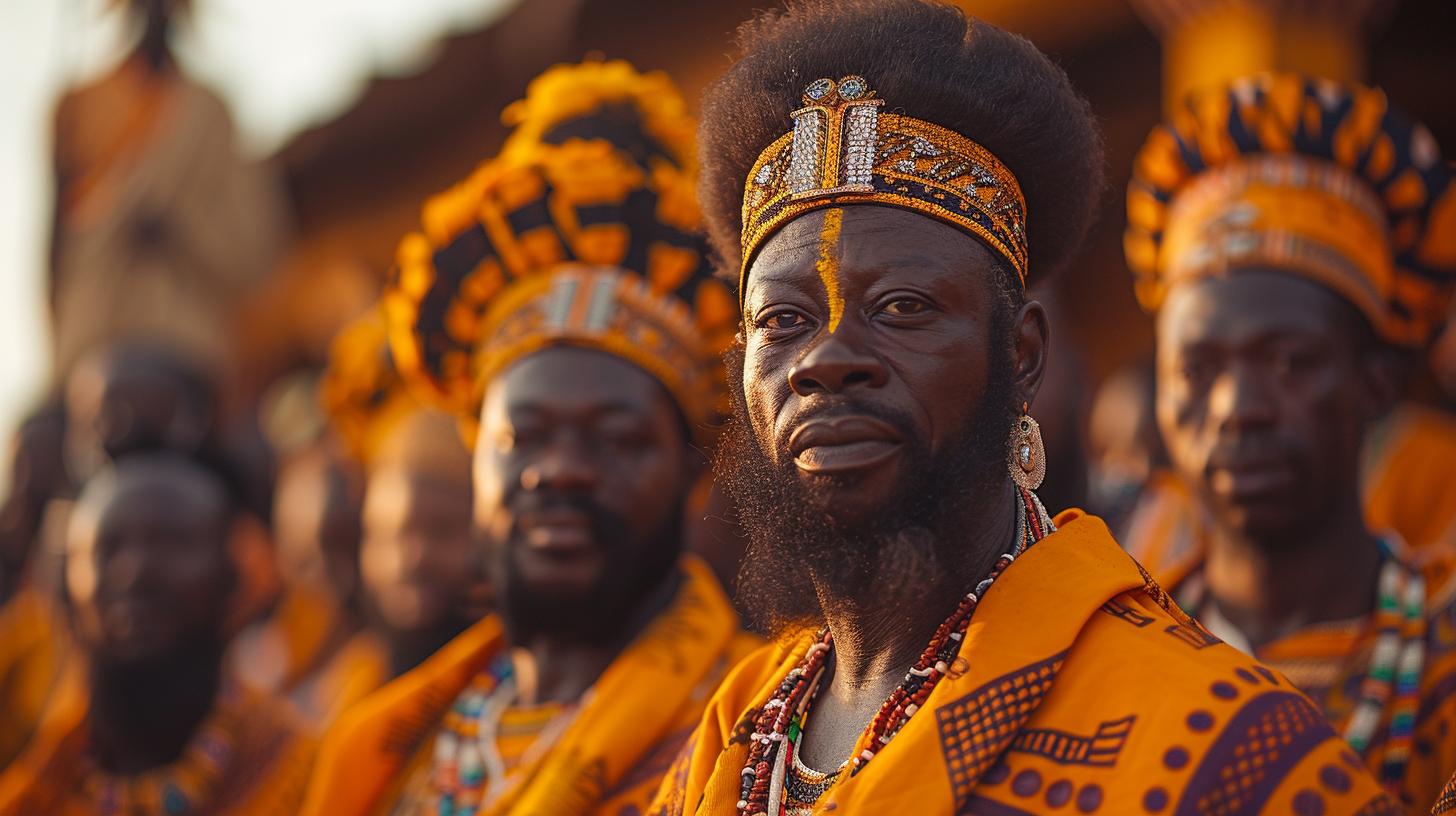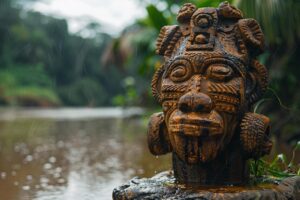Dormaahene And Asantehene: Traditional Leaders in Ghana’s Political Landscape

Chieftaincy in Ghana has a long history, with Dormaahene and Asantehene being prominent traditional leaders. A recent controversy arose when Dormaahene challenged Asantehene’s authority, sparking debates on the political impact and cultural significance.
Governmental intervention aims to resolve the dispute while balancing tradition with modern governance.
Origins of Chieftaincy in Ghana
The history of chieftaincy in Ghana dates back to ancient times, with traditional leaders playing a central role in the governance and administration of various regions. Among these leaders are the Dormaahene and Asantehene, who have held positions of authority and influence for generations.
History of Dormaahene and Asantehene
The Dormaahene and Asantehene have long been recognized as key figures in the traditional leadership structure of Ghana. Their lineage and heritage trace back to ancestral roots, with each leader holding a distinct position of power within their respective communities.
Traditional Leaders in Ghana
Traditional leaders in Ghana, including the Dormaahene and Asantehene, are revered for their wisdom, guidance, and connection to cultural heritage. They often serve as mediators, decision-makers, and custodians of tradition, upholding the values and customs of their people.
Recent Controversy between Dormaahene and Asantehene
A recent and heated dispute has unfolded between Dormaahene and Asantehene, two influential traditional leaders in Ghana, sparking debates and tensions.
Dormaahene’s Challenge to Asantehene’s Authority
Dormaahene, Osagyefo Oseadeayo Agyeman Badu II, has openly questioned Asantehene’s power and authority, challenging his status as a king according to Ghana’s constitution.
Asantehene’s Response and Plans
In response, Asantehene, Otumfuo Osei Tutu II, defended his position and authority, highlighting historical ties and plans to elevate other chiefs to supreme chief status in various regions of Ghana.
Political Impact of Dormaahene and Asantehene Dispute
The dispute between Dormaahene and Asantehene has had significant political implications in Ghana.
This section delves into the role of chieftaincy in Ghana’s political landscape and the efforts made by the government to intervene and resolve the ongoing conflict.
Role of Chieftaincy in Ghana’s Politics
Chieftaincy plays a crucial role in Ghanaian politics, with traditional leaders like Dormaahene and Asantehene wielding considerable influence over their respective regions.
Their decisions and actions can impact local governance and community development projects, making them key players in the political arena.
Historical Influence
- Traditional leaders have a historical legacy of shaping political outcomes, dating back to pre-colonial times.
- They are often seen as custodians of tradition and culture, representing a link to Ghana’s past.
Present-Day Significance
- Chieftaincy continues to be revered by many Ghanaians, who look to traditional leaders for guidance and leadership.
- Their involvement in political matters can sway public opinion and influence policy decisions at the local and national levels.
Governmental Intervention and Resolution Efforts
In response to the escalating tensions between Dormaahene and Asantehene, the Ghanaian government has stepped in to mediate the dispute and prevent further unrest.
Various initiatives have been implemented to address the conflict and promote peaceful resolutions.
Mediation Processes
- Government officials have engaged in dialogue with both parties to understand their grievances and find common ground.
- Mediators are working towards a mutually beneficial solution that respects the traditions of both Dormaahene and Asantehene.
Conflict Resolution Strategies
- Efforts are being made to de-escalate tensions and foster reconciliation between the two traditional leaders.
- The government is committed to upholding peace and stability in the region by addressing the underlying causes of the dispute.
Cultural Significance and Modern Relevance
The cultural significance and modern relevance of Dormaahene and Asantehene hold a unique place in Ghanaian society, navigating a delicate balance between tradition and contemporary governance.
Balancing Tradition with Modern Governance
Successfully blending tradition with modern governance is essential for the continued relevance of Dormaahene and Asantehene in Ghana. This delicate equilibrium requires an understanding of historical customs while adapting to the evolving political landscape.
Preservation of Cultural Heritage
- Preserving the rich cultural heritage associated with Dormaahene and Asantehene is crucial for maintaining the authenticity and historical significance of their roles.
- Traditional practices, ceremonies, and rituals must be upheld to honor the legacy of these traditional leaders and foster a sense of cultural pride among Ghanaians.
Incorporating Modern Principles
- Embracing modern principles of governance, such as transparency, inclusivity, and accountability, is necessary to ensure the effectiveness and legitimacy of Dormaahene and Asantehene in contemporary Ghana.
- Adapting traditional structures to align with modern administrative frameworks can enhance their ability to address current societal challenges and meet the expectations of a diverse population.
Future Implications and Societal Harmony
The outcome of the Dormaahene and Asantehene dispute will have lasting implications for the future of chieftaincy in Ghana and the overall societal harmony within the nation.
Promoting Unity and Integration
- Resolving conflicts between traditional leaders like Dormaahene and Asantehene is essential for promoting unity and fostering integration among different ethnic groups and regions in Ghana.
- Building collaborative relationships between chieftaincy institutions and governmental bodies can contribute to a harmonious coexistence that respects both tradition and modern governance structures.
Safeguarding Cultural Diversity
- Recognizing and celebrating the cultural diversity represented by Dormaahene and Asantehene is key to preserving Ghana’s rich tapestry of traditions and promoting a society that embraces its multicultural heritage.
- Embracing cultural pluralism and valuing the contributions of various ethnic groups can strengthen national cohesion and foster a sense of solidarity among all Ghanaians.
.









